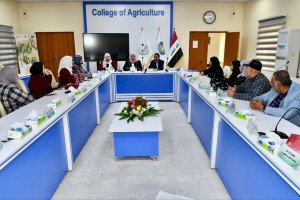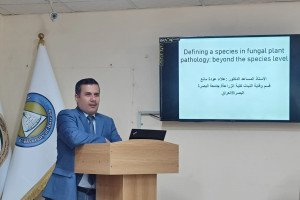
Research a scientific study at the University of Basra prepared by the teacher in the Department of Food Sciences - College of Agriculture - University of Basra (Prof. Sarmad Ghazi Muhammad Al-Shawi) in cooperation with researchers from various Arab and international universities Study on food preservation materials based on nanoparticles The study, which was published in the Brazilian Journal of Food Science and Technology, is classified within the Clarivite and Scopus Q2 containers, with a Cite score: 2.4, affiliated with the Sociedade Brasileira de Ciencia e Tecnologia de Alimentos. The food industry is one of the most important parts of a country's industry when it comes to food safety and security. A new approach that could be considered is the use of new technologies in this field. Due to the increase in population and per capita food consumption, this sector of the industry should strive to achieve sustainable development through the use of nanotechnologies and increased productivity. In the food industry, a number of nanostructured materials (NSMs) have been used, ranging from inorganic metals and metal oxides and their nanocomposites to organic nanomaterials comprising biologically active agents. Given the various advantages of nanotechnology, there are increasing questions regarding its application, as the assembly of nanomaterials (NSMs) in human bodies and the atmosphere may pose a variety of health and safety risks. As a result, when nano-processed foodstuffs are produced, handled, intelligently packaged and used, safety and health risks must be considered, as well as regulatory policies. The goal of this analysis is to provide a basic understanding of nanotechnology applications in the food packaging and processing industries, as well as to identify the potential opportunities and potential risks associated with the use of NSMs. https://doi.org/10.1590/fst.39721








